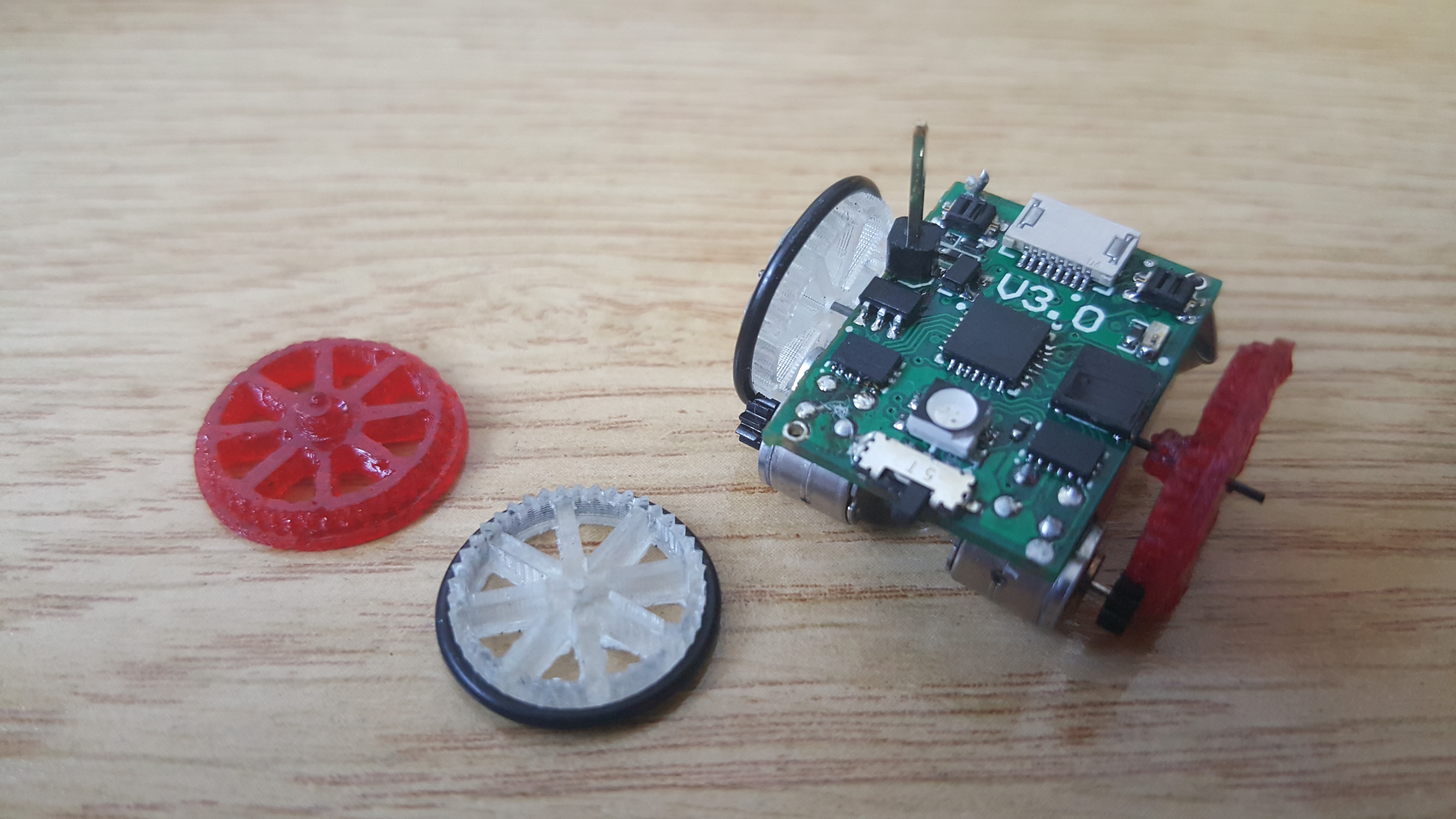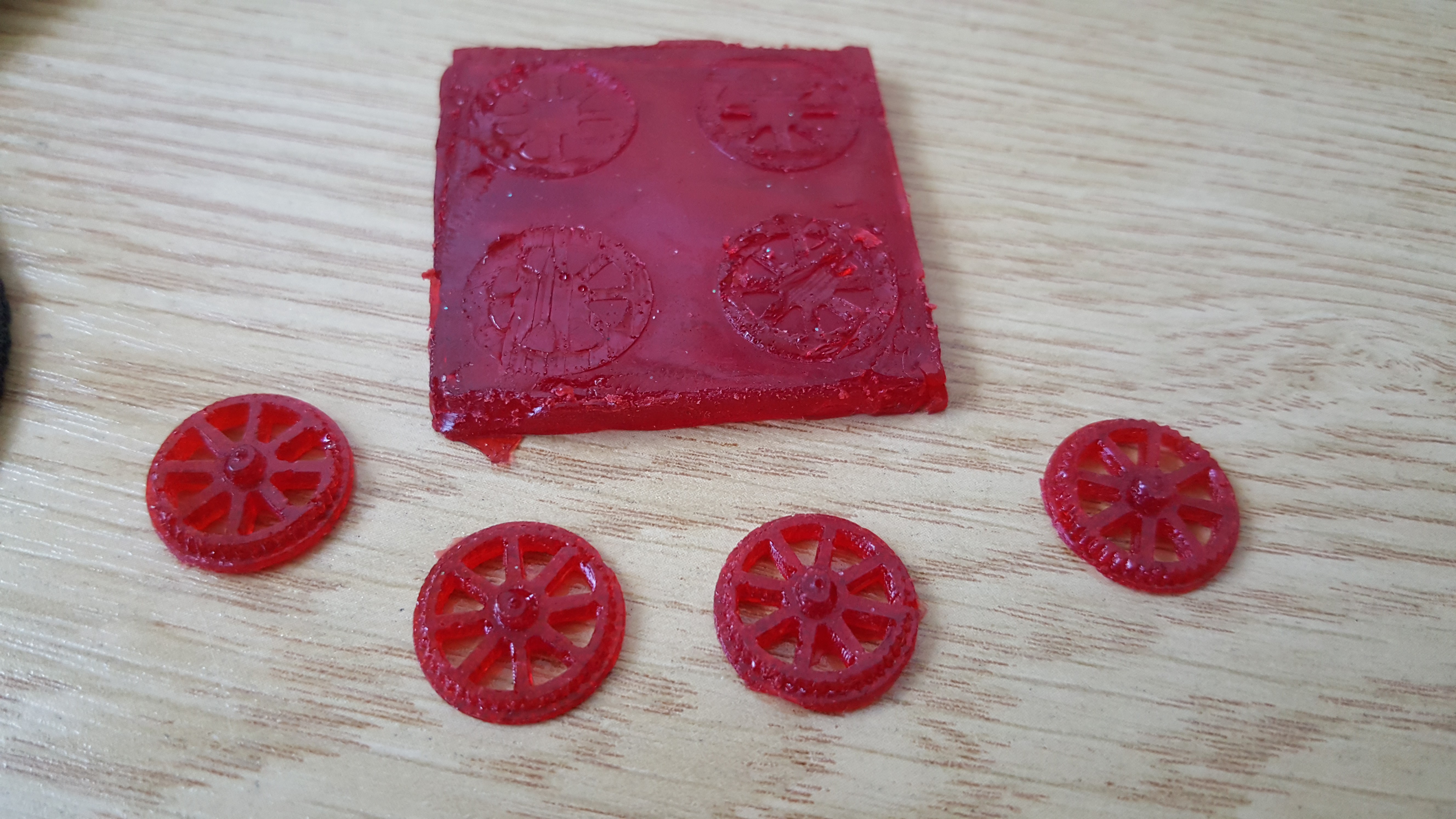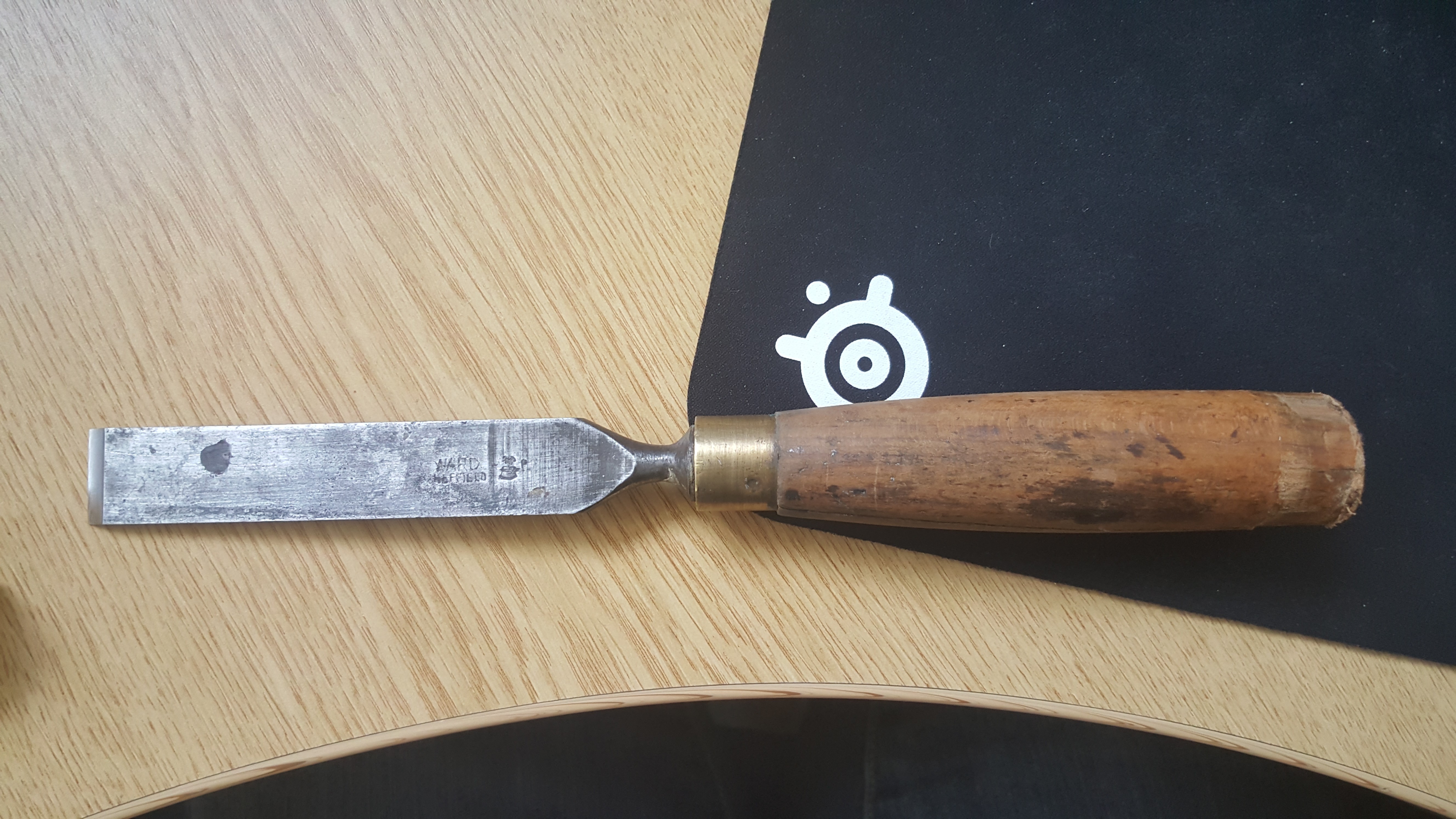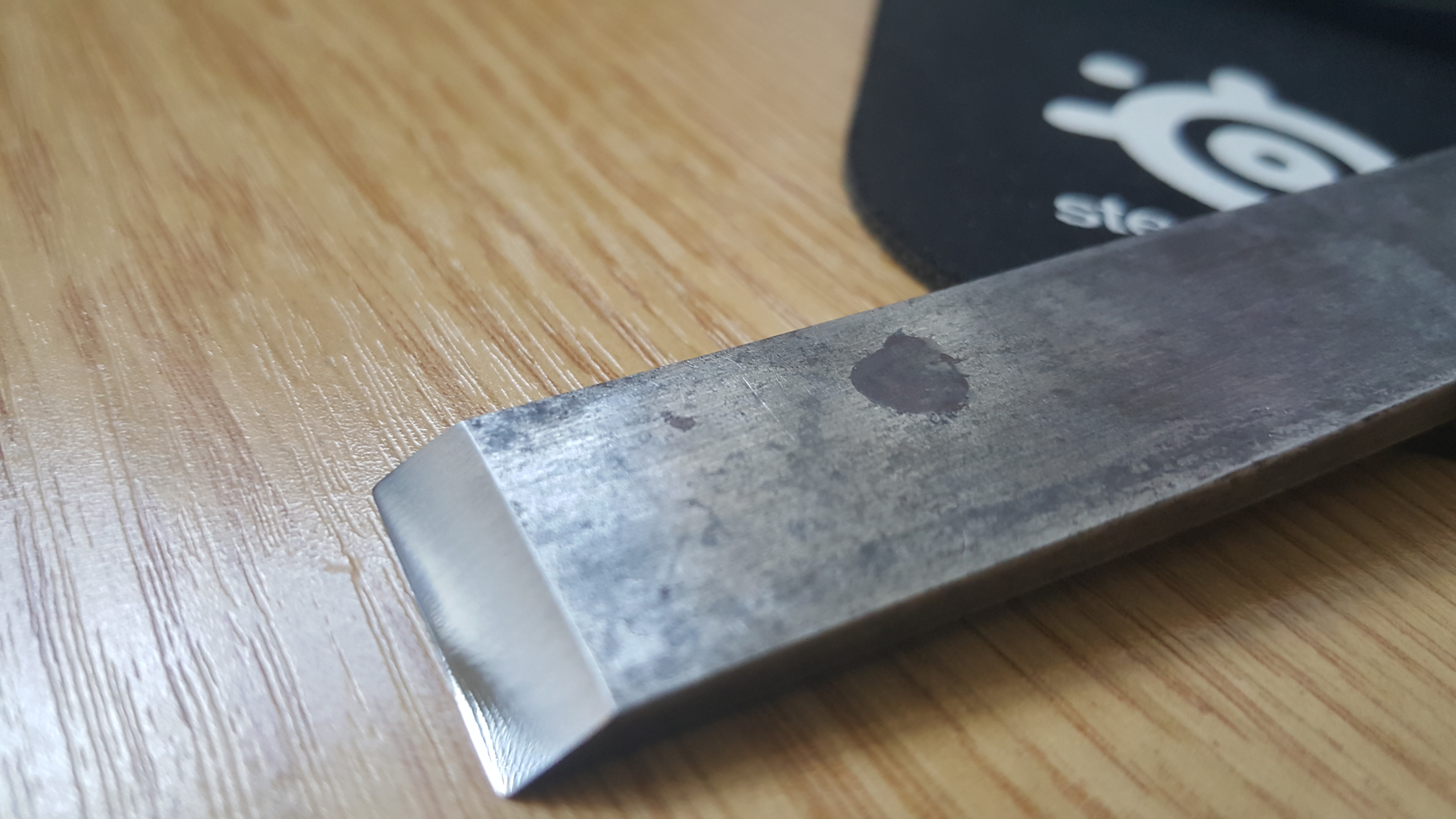From the last log you can see that there are 2 front runners in the competition to be our wheels of choice: 3D printed wheels and cast wheels. The printed wheels, with the correct sized o-rings are very serviceable. You are going to have to trust me that the robot drove around admirably, the single working prototype has given up the ghost, and I had forgotten the golden rule 'video, or it didn't happen'. Forgive me. The printed wheels still have a little way to come, we need to make the bore hole longer, via a boss to make the wheel more stable on the shaft. But I will cover this process in part 3 of wheel experimentation.
The moulded wheels are a little hit and miss however, the teeth are not fully well formed and the circumference is not particularly round. But the wheels themselves are not the stare of this particular show, I found myself rather excited about chisels. This all started when I was considering how to remove the tiny wheels from the bulk material after moulding, as we are using a simple one part mould. I have a selection of decent knives but all of the blades are curved, which would lead to some wheels being gouged out, and others cut off a little high. So that got me thinking. I need a straight knife, one with a well defined flat side. I contemplated those hobby razors that people use for crafting, but they are small and fiddly. So instead. a chisel was my choice.
First I got a cheap chisel from the local hardware shop, did a piss poor job of getting it sharp, then promptly got back to reading. Turns out vintage/antique chisels are as good as high quality modern chisels. So for roughly the same price I paid for a cheap and cheerful Chinese chisel, I got an antique Ward chisel made in Sheffield. I cannot verify that it is actually an antique, but the marking suggest roughly world war 2 era. Any way, to round up a rather unnecessary discussion, it sharpened well. It made me happy.
Here are some pictures of the wheels in their current state, and some sweet chisel sliding through silicone rubber action.





 Joshua Elsdon
Joshua Elsdon
Discussions
Become a Hackaday.io Member
Create an account to leave a comment. Already have an account? Log In.